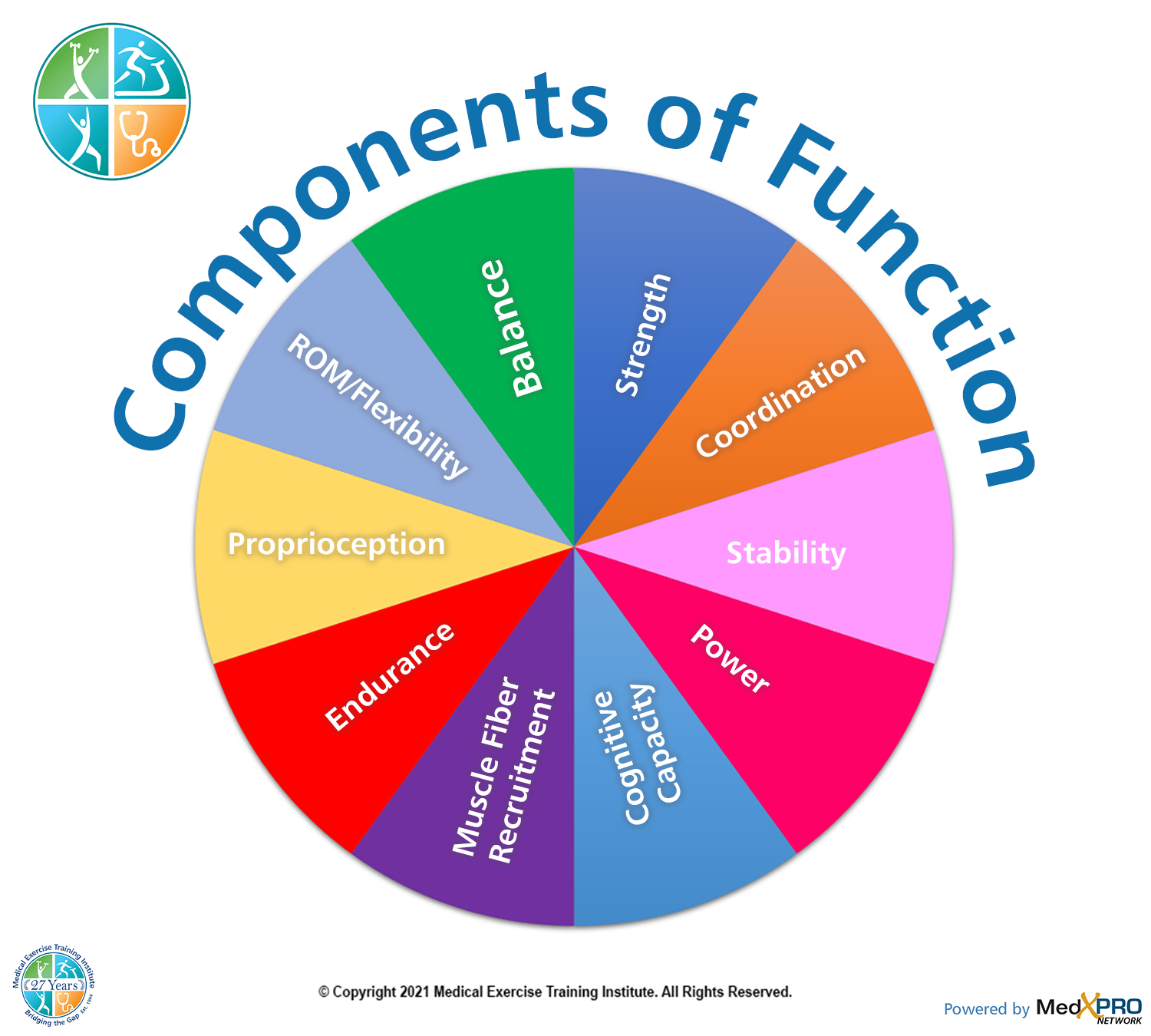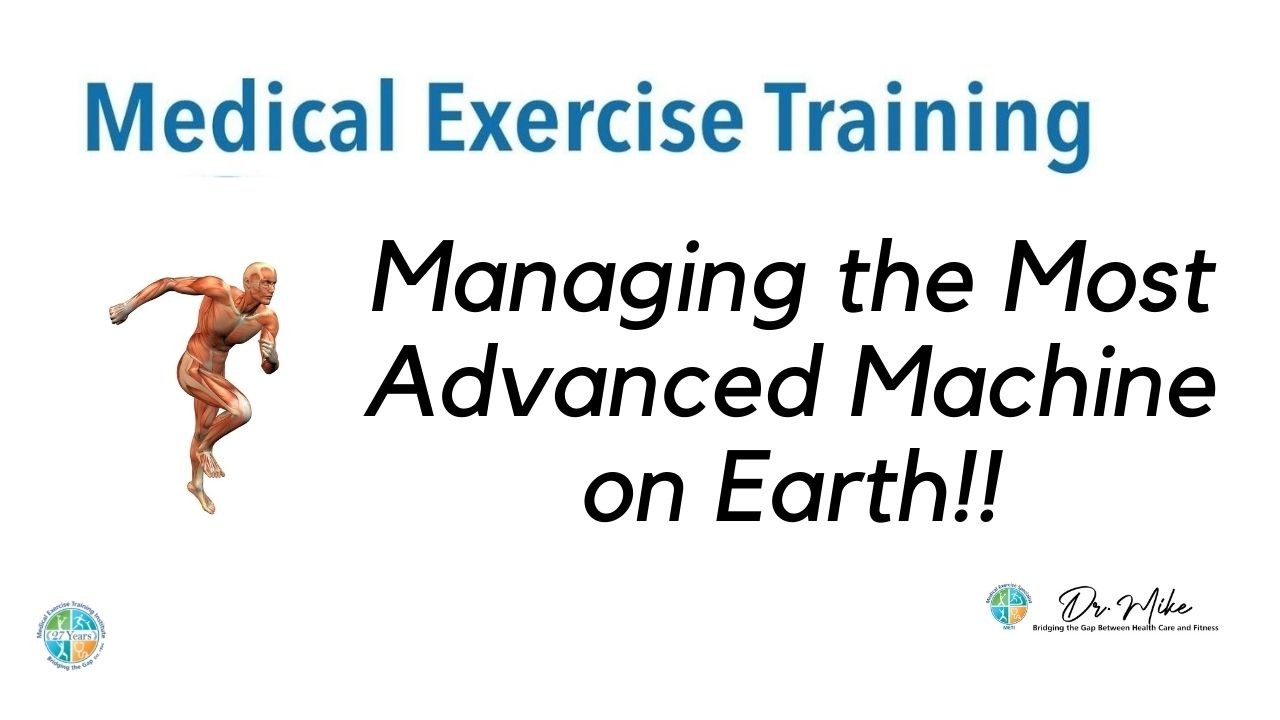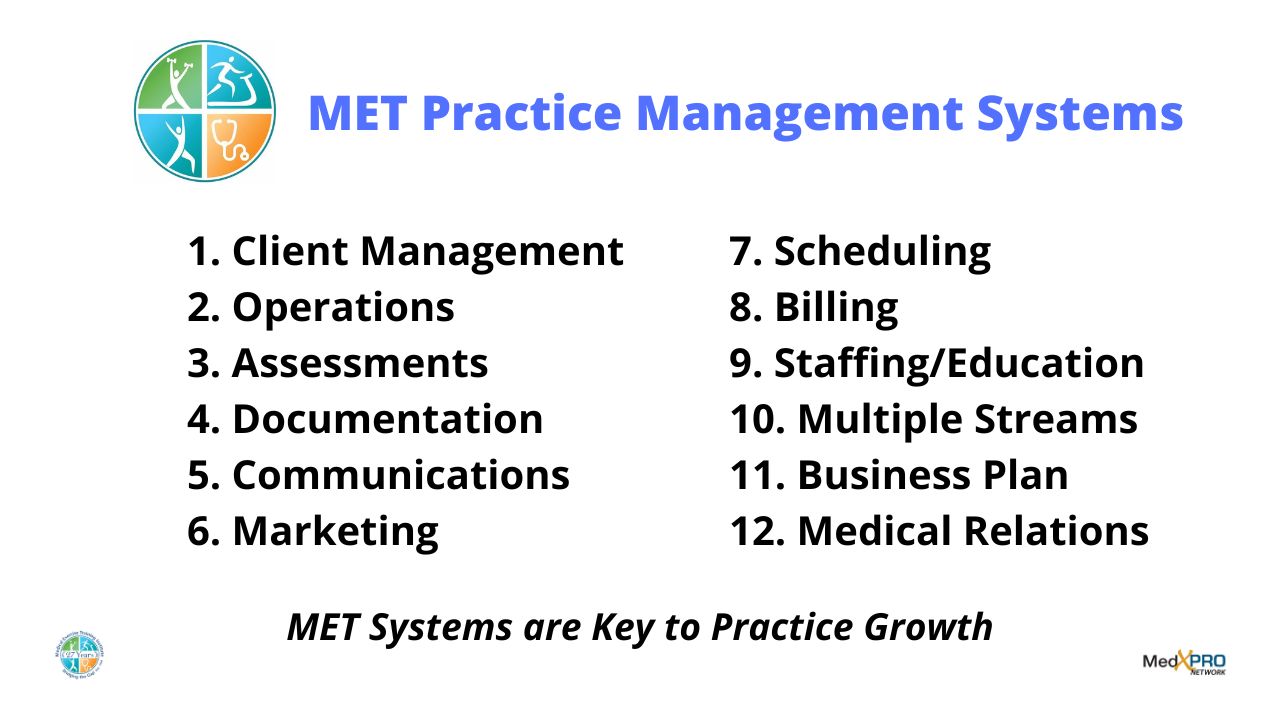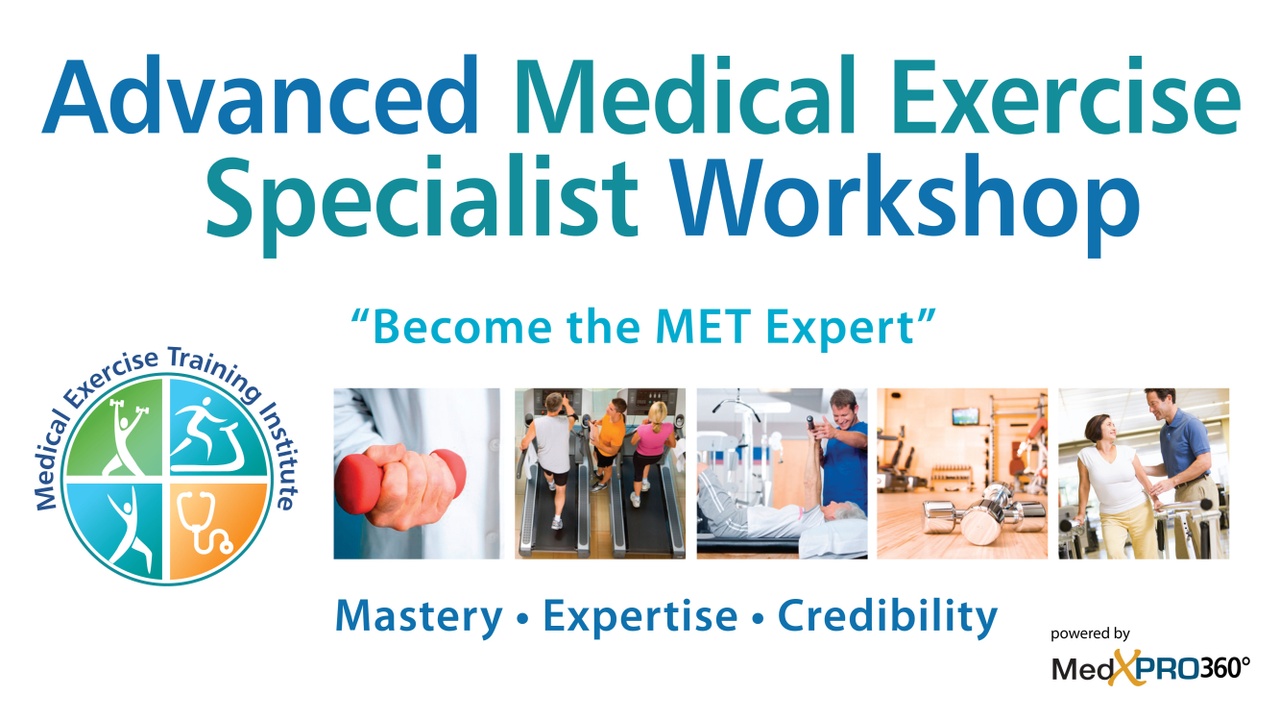METI Fall 2021 Workshop Update
We've made some changes to our Fall/Winter 2021 Schedule. Covid is definitely having its impact but we adapt and overcome. Join us at the:

Medical Exercise Specialist Virtual Workshop - Oct 30 & 31

Advanced Medical Exercise Specialist Workshop - Nov 11 - 14
MedXPRO Summit - Dec 3 - 5
Function........Is Our Role!!
The Medical Exercise Specialist (MES) workshop and certification started in 1994 with its primary focus to education fitness professionals to manage the functional deficits remaining after physical and occupational therapy, and chiropractic concluded. The MES functions to identify functional deficits and develop exercise programs to enhance those deficits. The role is not to compete with medical professionals....but to do something that is not provided for the client after their discharge from licensed medical services.....improve their level of function.

The need for medical exercise training services will grow but let's make sure we stay focused on our role. MET will grow tremendously as insurance carriers cutback on physical, occupational therapy, chiropractic and other licensed medical services. Managing functional deficits with exercise is amazing.....it works if properly dosed and monitored. It's the magic elixir....it's the key to long term management of medical conditions. ...
Medical Exercise Training....Managing the Most Advanced Machine on Earth!!

To all METI - Medical Exercise Specialists, Post Rehab Conditioning Specialists and Medical Exercise Program Directors.....I think this image speaks for itself. Thanks for all the great work you have done in helping your clients improve their function and enhance their lives. Look for more images in the MET series in the next few weeks.
Dr Mike
Medical Exercise Training Career Success
Medical Exercise Training (MET) is not just another certification or means of attracting clients, but it provides fitness professionals a new opportunity to help your community. This new profession - Medical Exercise Training - DOES NOT purport to provide any aspect of medical treatment or diagnostics but only safe and effective exercise after the conclusion medical care.
We have identified 6 steps in the path to a successful career as a Medical Exercise Specialist. It begins with a FOUNDATION gained through the workshop and certification but continues to: 2. APPLICATION; 3. MANAGEMENT; 4. SPECIALIZATION; 5. GROWTH and 6. LEADERSHIP. This success path is like those seen in medicine, law, etc. To review the full video series on the MES Career Success Path go to: MES Career Success.
Medical Exercise Training - Practice Management Systems
Exercise is Definitely Medicine....."If Dosed Properly and Effectively!!"

Medical Exercise Practice Management Systems - The Keys to Long Term Success
Running a medical exercise training practices requires much more skill and savvy then a personal training business. Though both are based on providing exercise to your clients, the MET practice requires much more administrative skill and knowledge for success.
We have identified 12 Medical Exercise Training Practice Management System you should establish in your practice to maximize efficiency and success. These systems include:

We will review these systems in detail in the MEPD and show how you can establish versions of these systems in your practice to fit your needs. Medical exercise training skills are one important component of your business.....but having practice systems in place allows you to grow and expand your practice is the other key skill.
The MEPD starts September 20th!! Click here for Medical Exercise Program Director.
Advanced Medical Exercise Specialist Workshop - Nov 11 - 14 - Katy, TX

The Advanced Medical Exercise Specialist (AMES) workshop is coming back to Houston - November 11 - 14. The first AMES workshop was such a huge success we are offering the program again. For details go to www.AdvancedMedicalExerciseSpecialistWorkshop.com. This workshop is for all MES or PRCS grads looking to take the MET skills to the next level.
Medical Exercise Specialist is Going Back to NYC!!
The Medical Exercise Specialist 2-Day Onsite Workshop is going back to the Big Apple......New York City - October 30 - 31, 2021!!! This is our internationally known Medical Exercise Specialist workshop. With your enrollment for the MES workshop, you also receive access to the Medical Exercise Specialist Training (MEST) series and the MES Study Group webinars. Go to www.MedicalExerciseSpecialist.com for course details and the MEST components.
This workshop will be hosted by FocusNYC. Our thanks to Gabe Valencia, MES and Joe Masiello, MES for their long-time support and great work at Focus.
METI - A Brief History of our Certifications
This is a summary of the Medical Exercise Training Institute (METI) workshops and certifications. METI started in 1994 when Dr Jones started to see the need for a fitness professional with the skills and knowledge to manage medical conditions after therapy services were concluded using only exercise.
METI offers: 1) the Medical Exercise Specialist; 2) the Post Rehab Conditioning Specialist and 3) the Medical Exercise Program Director certifications. In early 2021 we began our Advanced Medical Exercise Specialist Residency. For more details on our certifications go to www.MedicalExerciseTrainingInstitute.com.
To test your medical exercise/post rehab knowledge try our Medical Exercise Training Survey by following this link. This is a 70 question survey related to managing medical conditions using exercise. Thanks for taking the time to complete the survey.

